There are times when it seems like the objects around you will not allow you to capture an interesting photo. In these situations, there are some creative approaches you can take to transform ordinary, or even boring, subjects into something that will make a quality photo. In this article we’ll look at seven different techniques that you can use in these situations, along with an example of each.
You won’t always be surrounded by beautiful waterfalls, majestic mountain ranges, or gorgeous models, but interesting photo subjects are all around us. Here are some techniques to keep in mind.
1. Frame or Crop in an Interesting Way
The composition of any photo is just as important as the subject matter. While composition is important regardless of what type of subject you are shooting, if you’re looking to make an ordinary or boring subject more interesting, a creative composition can be an excellent approach.
When going with this approach, consider breaking some of the standard composition rules. For example, you could show only a portion of the subject in the frame to create some intrigue.
For some interesting tips and examples see this Photo Gallery: Breaking the Rules.
2. Change Your Angle or Perspective
Most photos tend to come from eye level. Try getting high or low to get a different perspective. This can apply to portraits, landscapes, travel photos, family photos, and just about any subject.
In other situations you can also look for interesting angles that create a unique perspective or composition. This could make use of leading lines or simply showcase a common subject from an un-ordinary view.
See Tips for Using Scale and Perspective in Photography and 20 Amazing Examples of Perspective in Photography.

“Global Perspective” captured by www.liveoncelivewild.com
3. Get Close Up
Fill the frame and even go to a macro shot when the situation calls for it. Close ups present the same subject in a very different way that tends to capture attention. This obviously can work well with still objects, like the piano shown below, but it can even be effective with portraits and landscapes.
Another reason why close ups and macro shots can be more interesting is the increased detail. If your subject has some sort of interesting detail when you get close, consider making that detail a focal point of the shot. Boring subjects can often be made far more interesting when a small detail takes over.
See 6 Tips for Successful Macro Photography.

Photo by Shai Barzilay; ISO 200, f/5.6, 2-second exposure.
4. Showcase Patterns
Finding and featuring a pattern or repeating element is a great way to add some intrigue to a photo. It could be a pattern that occurs in nature or something man-made. With effective composition, the pattern itself can be the focal point of the photo.
See 20 Beautiful Examples of Patterns in Photography.
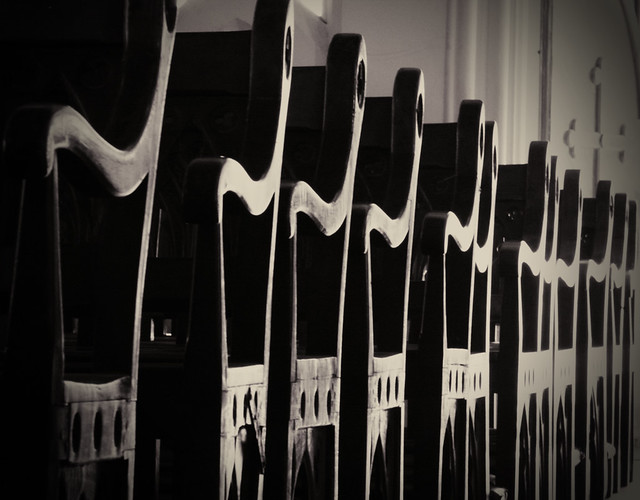
“pattern” captured by Vinoth Chandar (Click image to see more from Vinoth Chandar.)
5. Experiment with Lighting
Lighting is, of course, one of the most critical elements of photography. The same scene can look completely different in varying lighting situations, and this provides an opportunity to get creative. Experimenting with different types of lighting can lead to more interesting and unique photos. The lighting could be natural, such as photographing a scene at sunset or under moon light, or through the use of artificial lighting.
See Simulating Golden Sunlight with Speedlights and Mastering Light: Getting the Most Out of Your Lighting Situation.
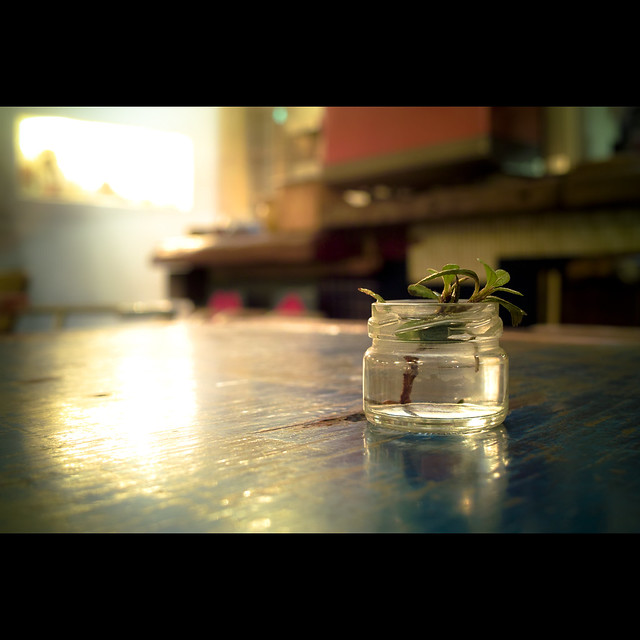
“Light” captured by Guwashi999 (Click image to see more from Guwashi999.)
6. Experiment with Depth of Field
Rather than keeping everything in the frame in focus, use depth of field and selective focus to emphasize a particular element while throwing the rest of the photo out of focus. Obviously, the focal point of a photo has a major impact on the overall look, so using some creativity here can help to make a photo more intriguing.
See How to Use Depth of Field for a more-detailed explanation and tips.
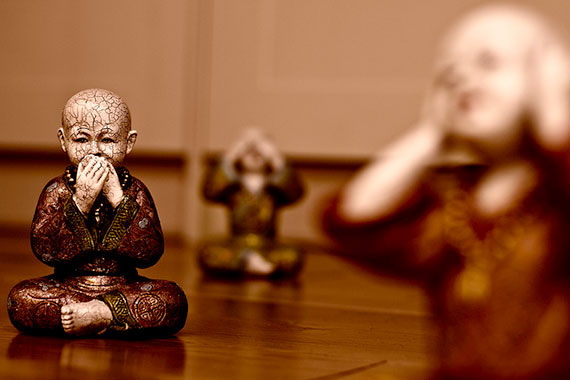
Photo by Toby Charlton-Taylor; ISO 100, f/2.8, 1/20-second exposure.
7. Experiment with Shutter Speed
Faster shutter speeds can be used to freeze the action with moving subjects, and slower shutter speeds can be used to blur moving objects or to cause blur from movement of the camera. When it comes to improving boring subjects, there may be times when you want to intentionally blur a photo or an object in a photo to make it more interesting. Experimenting with shutter speed is simple. All you need to do is put the camera in shutter priority mode or manual mode and try different shutter speeds, slowing it down until you get the blur that you’re after.
See Using Shutter Speed to Freeze or Blur Motion.
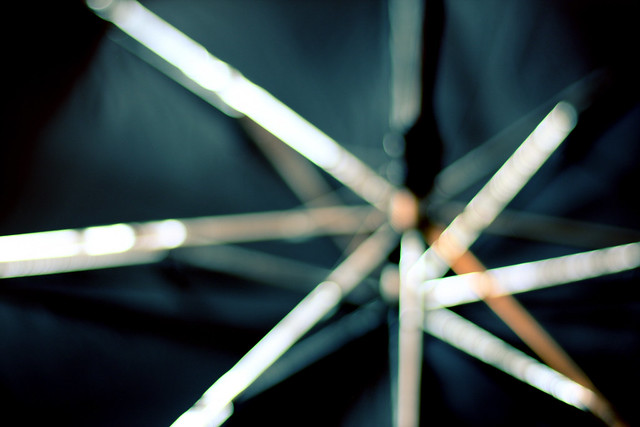
“spokes” captured by Alex (Click image to see more from Alex.)
About the Author:
Marc Andre is the editor of PhotographyPla.net, a website that offers downloadable products like Photoshop actions, Lightroom presets, photo overlays, textures, and print templates.
Like This Article?
Don't Miss The Next One!
Join over 100,000 photographers of all experience levels who receive our free photography tips and articles to stay current:


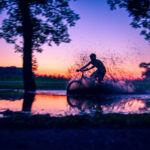



Leave a Reply